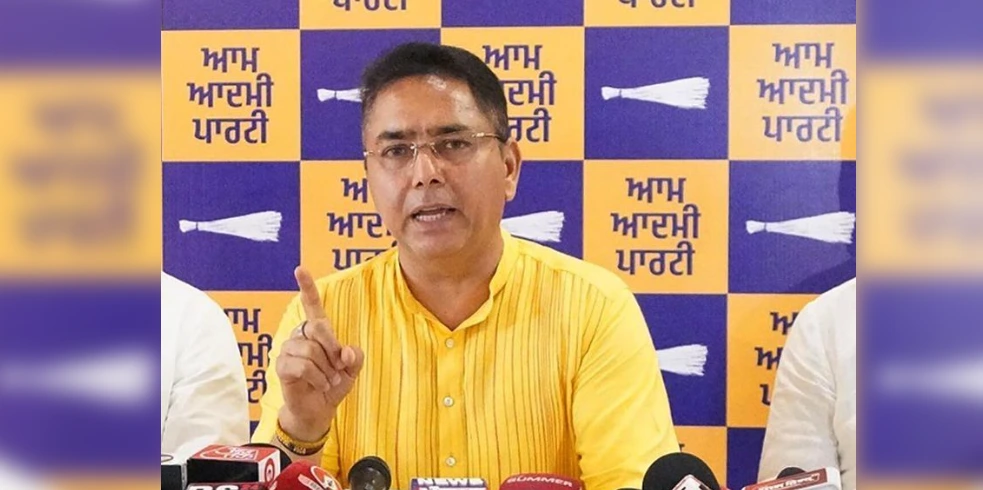Chandigarh, June 22: The Aam Aadmi Party (AAP) on Sunday defended its controversial move to appoint the Chief Secretary as Chairperson of Punjab’s urban development authorities, asserting that the amendment was intended to expedite decision-making, not diminish the Chief Minister’s powers.
Responding to criticism from opposition parties over the amendment to Section 29(3) of the Punjab Regional and Town Planning and Development (PRTPD) Act, AAP leaders clarified that the decision was rooted in administrative efficiency.
“The Chief Secretary will approve proposals, but the final nod will still come from the Punjab Urban Development Authority and the Cabinet,” said Aman Arora, Punjab AAP president and Renewable Energy Minister. “Chief Minister Bhagwant Mann remains the chairman of PUDA and leads the Cabinet. How does this undermine his authority?”
Opposition parties, including the Shiromani Akali Dal, have accused the government of stripping the Chief Minister of critical decision-making powers under the guise of reform. In response, Education Minister Harjot Bains accused the Akali Dal of misgovernance during their own tenure and said the AAP government was only pursuing people-first policies.
Finance Minister Harpal Singh Cheema described the reform as a “landmark” administrative step toward decentralisation. “In a visionary decision, the Chief Minister has delegated the chairmanship of all Urban Development Authorities to the Chief Secretary,” Cheema said. “This is about empowering the bureaucracy to act swiftly on local issues while ensuring strategic oversight remains with the Chief Minister.”
The Cabinet has also approved a standardised structure for all eight urban development authorities. The new framework will include Deputy Commissioners and Municipal Commissioners as members, streamlining authority-level decisions and ensuring faster implementation of development projects.
Officials said the reform follows a detailed review of national governance models, where similar development authorities are typically chaired by IAS officers or designated ministers—not the Chief Ministers themselves. Examples cited include Noida, Ahmedabad, Kanpur, and Bengaluru.
“This delegation of day-to-day functions will allow the Chief Minister to focus on state-wide priorities, without being bogged down in local administrative minutiae,” Cheema added. “It’s a practical move to cut through red tape, not a political one.”

